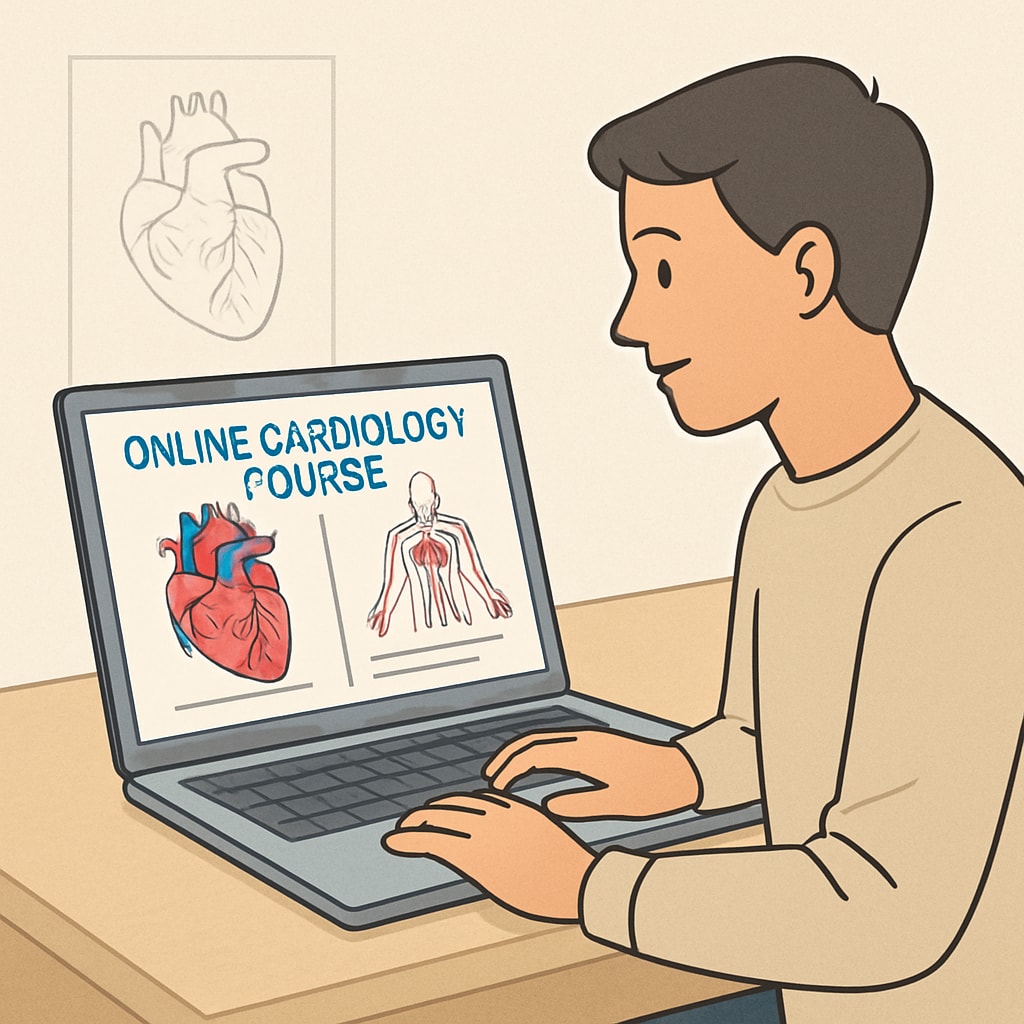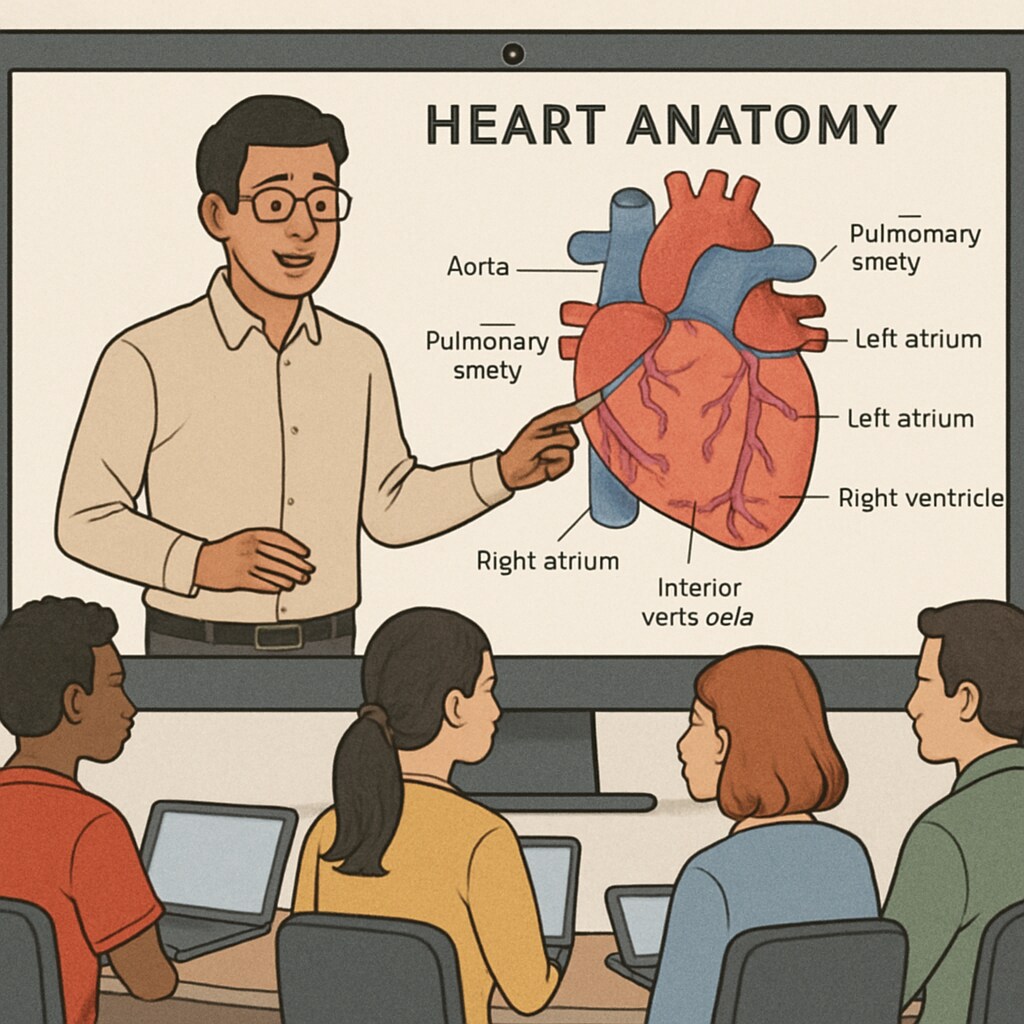With the rising emphasis on health awareness, individuals from non-medical backgrounds are showing a growing interest in gaining professional-level knowledge in specialized areas like cardiology. However, accessing high-quality educational resources tailored to such audiences remains a challenge. This article explores the current landscape of medical education for non-medical professionals and offers insights into innovative solutions, such as online courses, that aim to bridge this gap.
Why Non-Medical Professionals Seek Medical Knowledge
In today’s interconnected world, health literacy is no longer limited to healthcare professionals. People from diverse fields—engineers, educators, and business leaders—are keen to understand medical topics, often to make informed personal health decisions or contribute to related industries. For example, cardiology, which focuses on heart health, has gained particular attention due to the increasing prevalence of cardiovascular diseases globally.
Yet, most traditional medical education is designed for those with prior medical training. This creates a significant barrier for non-medical learners who need simplified yet accurate information. Without accessible learning paths, many remain reliant on fragmented or unreliable sources.

Innovative Resources for Learning Cardiology and Other Medical Topics
Fortunately, the digital age has introduced a range of resources to address this educational gap. Online platforms now offer courses specifically designed for non-medical audiences, covering topics such as cardiology, anatomy, and pharmacology. These courses often incorporate the following features:
- Accessible Content: Simplified explanations of complex topics, avoiding excessive medical jargon.
- Interactive Learning: Videos, quizzes, and real-life case studies to enhance engagement.
- Flexible Formats: Self-paced modules that allow learners to study at their convenience.
For example, platforms like Coursera and edX offer specialized medical courses taught by experts from renowned universities. Many of these programs are designed to cater to beginners, making them ideal for non-medical professionals.
Overcoming the Challenges of Medical Education for Non-Medical Learners
Despite the growing availability of resources, certain challenges persist. For one, the sheer volume of information in fields like cardiology can overwhelm beginners. Additionally, understanding technical terminology often requires prior exposure to basic biological and physiological concepts.
To address these issues, some programs have adopted innovative teaching approaches:
- Modular Learning: Breaking down topics into smaller, manageable units.
- Supportive Communities: Online forums where learners can ask questions and share insights.
- Practical Applications: Case-based learning to demonstrate real-world relevance.
Such strategies not only make learning less intimidating but also ensure that the knowledge gained is both practical and memorable.

The Role of Online Courses in Making Medical Knowledge Accessible
Online courses are particularly well-suited to bridging the gap for non-medical learners. Unlike traditional education models, they offer the flexibility to learn anytime, anywhere. Additionally, many courses provide certifications, which can be valuable for professionals looking to enhance their credentials.
For example, a certificate in cardiology basics might be beneficial for fitness trainers, dietitians, or technology professionals working on healthcare software. These certifications demonstrate a commitment to understanding the medical needs of their clients or projects.
As a result, online courses not only democratize access to medical knowledge but also empower individuals to make meaningful contributions to health-related fields.
Conclusion: The Future of Medical Education for Non-Medical Audiences
Medical education is undergoing a transformation, with an increasing focus on making knowledge accessible to diverse audiences. For non-medical professionals, this shift presents an opportunity to deepen their understanding of critical topics like cardiology through innovative and flexible learning platforms.
By leveraging resources such as online courses, interactive tools, and supportive communities, non-medical learners can access professional-level knowledge without prior training. As a result, they are better equipped to make informed decisions, contribute to interdisciplinary projects, and promote a culture of health awareness.
Whether you’re a curious learner or a professional seeking to expand your expertise, the future of medical education is bright—and more inclusive than ever before.


